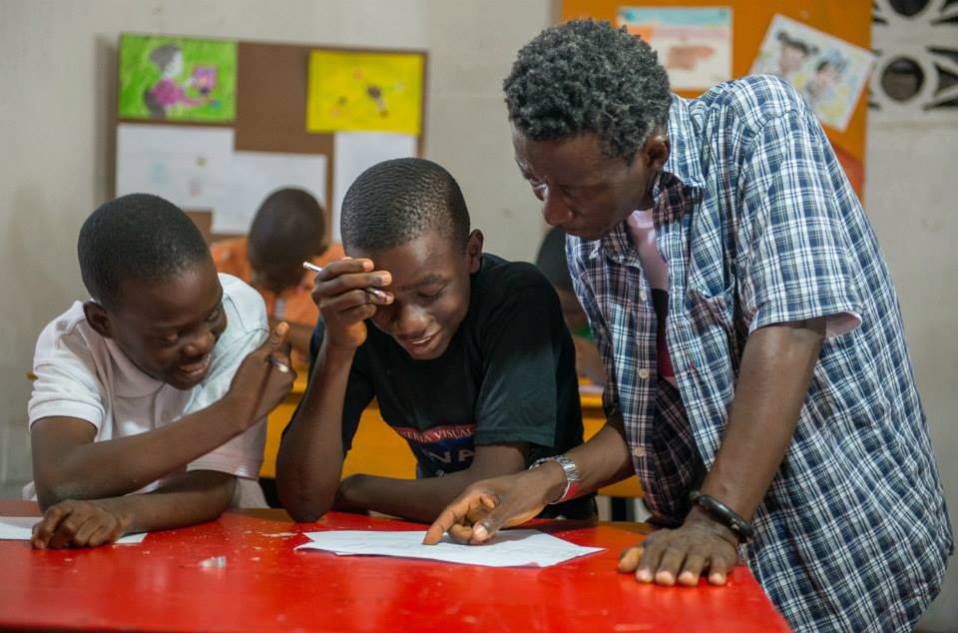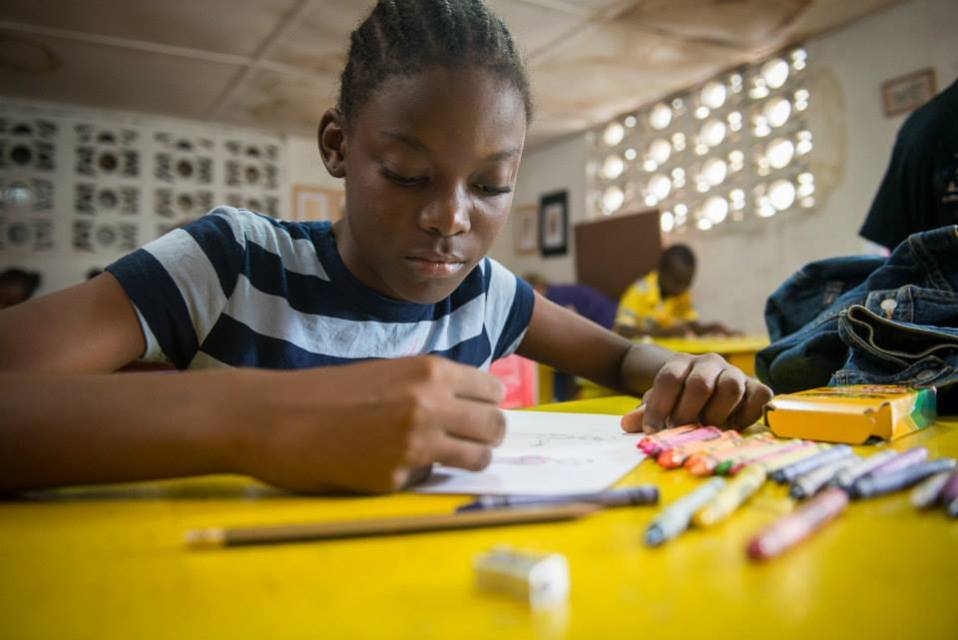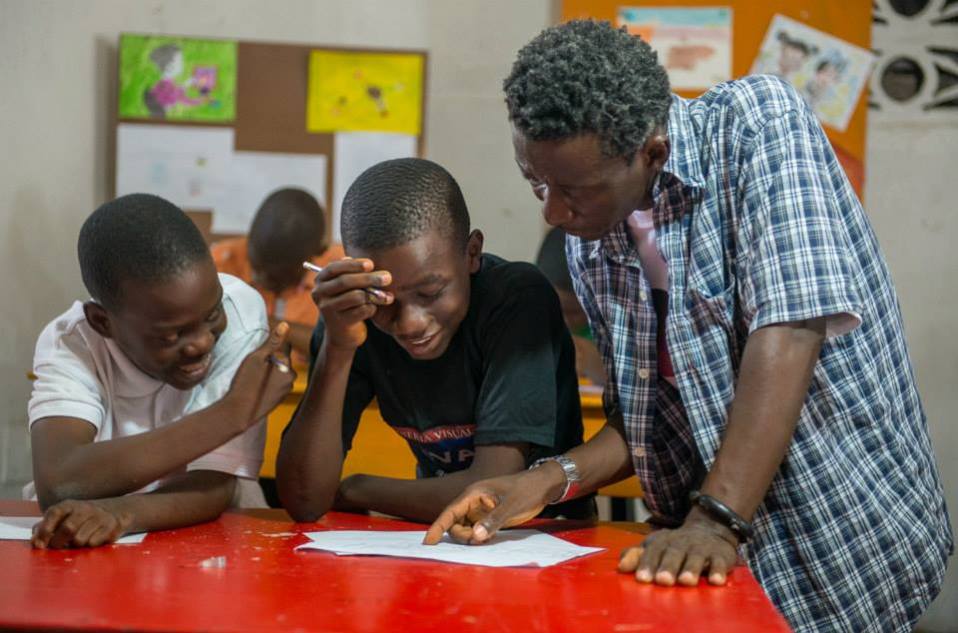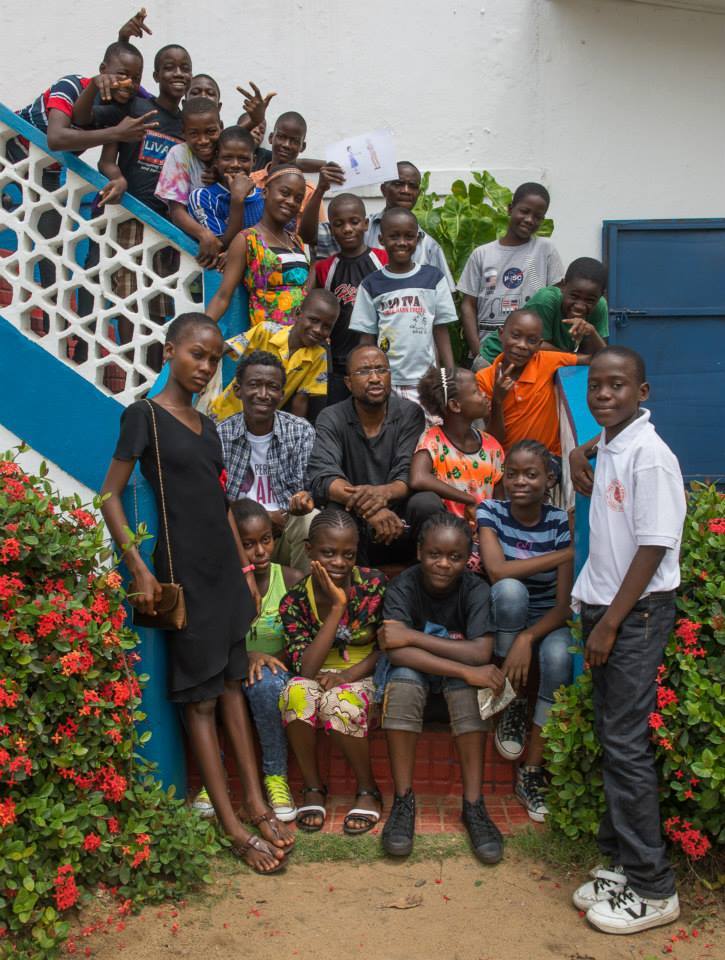NEWS
July 24, 2015

IN BRIEF
By: Brooks Marmon and Jim Tuttle, Accountability Lab in Monrovia, Liberia. This blog post was originally published as an article in Images Magazine, Edition 16. A Leslie Lumeh has been proclaimed “Liberia’s most celebrated artist” by CNN. A product of Booker Washington Institute, the visual artist has received accolades from wide and afar, with his works presented at exhibitions in Cote d’Ivoire, Gabon, South Africa, and the United States. His services are widely in demand by Liberia’s international partners, such as the UNICEF, the US Embassy, and the International Committee of the Red Cross. Stating that “I came to the earth as an artist”, Leslie notes that he began his career by [...]
SHARE
By: Brooks Marmon and Jim Tuttle, Accountability Lab in Monrovia, Liberia. This blog post was originally published as an article in Images Magazine, Edition 16.
A Leslie Lumeh has been proclaimed “Liberia’s most celebrated artist” by CNN. A product of Booker Washington Institute, the visual artist has received accolades from wide and afar, with his works presented at exhibitions in Cote d’Ivoire, Gabon, South Africa, and the United States. His services are widely in demand by Liberia’s international partners, such as the UNICEF, the US Embassy, and the International Committee of the Red Cross.
Stating that “I came to the earth as an artist”, Leslie notes that he began his career by composing imaginary photographs and drawing on the ground. Born in Grand Cape Mount County, Leslie moved to Monrovia where he met other practicing artists whose guidance was instrumental in helping him launch his career as an artist.
Leslie is now all about giving back and developing the next generation of Liberian artistic talents. He observes that “working with young people, training them, nurturing their talents, just increases the joy within me”. The primary outlet for Leslie to give back is through the Liberia Visual Arts Academy at the Alliance Francaise in Sinkor. Launched with support of the US and French Embassies, the Academy offers two courses – a certificate program to youth 16 – 25 years and a Kid Power course for children 10 – 15.
While Leslie hopes that as many graduates of the Academy as possible will become professional artists, he stresses that the critical thinking and analytical reasoning abilities that come with artistic instruction are also invaluable lessons for workforce preparation. He states that with “the basic skills we are giving them here, by the time they get out (of the academy) they will be able to solve a lot of problems.”

Corruption, politics, and human rights has always been a central feature of Leslie’s work. Rather than just lamenting the lack of impunity in Liberia and bemoaning the failure of the government to implement laws on the books, Leslie strives to make a tangible contribution to rectify these problems. His efforts to get Liberia to accede to various UNESCO conventions protecting artists have been unceasing; he sees it as his “responsibility as an artist to promote [Liberia’s] rich cultural heritage.” From serving as a cartoonist and illustrator at the Daily Observer for a decade to the launch last year of an accountability art school for students of the Kid Power program (with support from the Accountability Lab, a Liberian NGO), Leslie’s works have reached a wide cross-section of Liberian citizens.
His visions to expand the reach of this impact are ambitious. He hopes that the Academy will one day transform into a full-fledged institute, offering instruction on everything from photography to graphic design. Leslie recognizes the value of what he learned as an artist in exile in Abidjan for nearly a decade, so to ensure that the services of a Liberian arts institute reach as many Liberian youth as possible, feeder institutions will be strategically established in the various counties. To ensure that his fellow citizens gain an appreciation for the possibilities of a career as a visual artist, Leslie also aims to re-open his Art of the Heart gallery, which closed due to financial struggles.
In the aftermath of Ebola and the impending withdrawal of UNMIL from Liberia, what are Leslie’s views on Liberia’s future?
“I see a very bright future, not just for the academy, but for the country. These kids that we’re nurturing here, by the time they get out, as people that know corruption, they can decide good from bad, know what a true patriot is, and account for what they do with their parents, teachers, and society. We’re going to have a good Liberia and we’re going to have a better Liberia tomorrow.”


